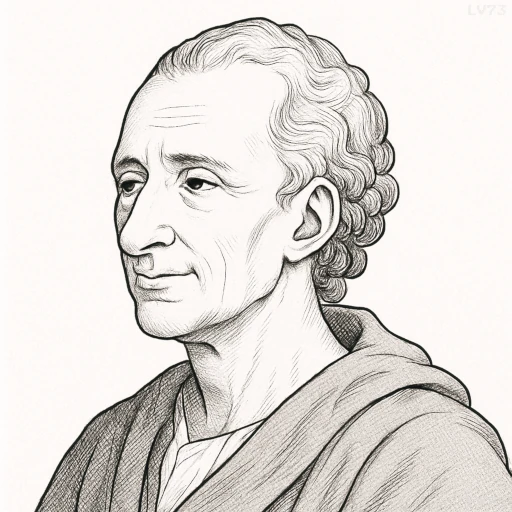“Slavery, properly so called, is the establishment of a right which gives to one man such a power over another as renders him absolute master of his life and fortune.”

- January 18, 1689 – February 10, 1755
- French
- Political Philosopher, Jurist, Author of The Spirit of the Laws
table of contents
Quote
“Slavery, properly so called, is the establishment of a right which gives to one man such a power over another as renders him absolute master of his life and fortune.”
Explanation
Montesquieu defines slavery as a legal construct that falsely grants one person total control over another’s existence. By calling it “the establishment of a right,” he exposes a deep irony: a law meant to structure justice instead legitimizes injustice. The phrase “properly so called” signals that this is not mere servitude or dependence, but a condition where one person becomes the total property of another, stripped of autonomy and humanity.
This perspective aligns with Montesquieu’s broader critique of absolute power in The Spirit of the Laws. He viewed any concentration of unchecked power—whether by monarchs or masters—as fundamentally dangerous. In an era when slavery was still widely accepted, especially in colonial contexts, Montesquieu’s words were a bold moral and political statement, challenging the legitimacy of slavery by emphasizing the unnatural domination it creates.
In today’s context, the quote resonates in discussions of human rights, systemic oppression, and modern forms of exploitation. Whether in labor trafficking or authoritarian regimes, when a system allows one human to control another’s life and fortune, the moral indictment Montesquieu issued still holds. His insight reminds us that true justice cannot coexist with the absolute subjugation of any individual.
Would you like to share your impressions or related stories about this quote in the comments section?

